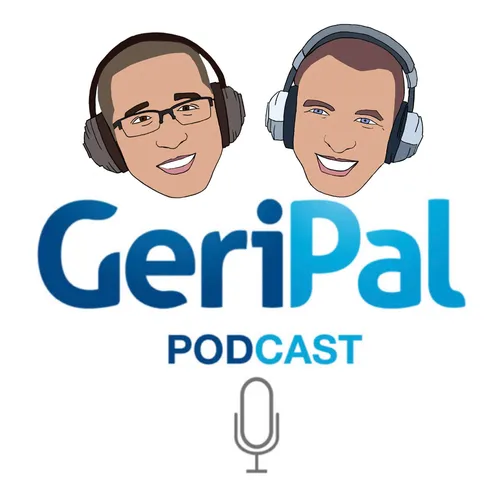
GeriPal - A Geriatrics and Palliative Medicine Podcast
A geriatrics and palliative medicine podcast for every health care professional.
Two UCSF doctors, Eric Widera and Alex Smith, invite the brightest minds in geriatrics, hospice, and palliative care to talk about the topics that you care most about, ranging from recently published research in the field to controversies that keep us up at night. You'll laugh, learn, and maybe sing along.
CME and MOC credit available (AMA PRA Category 1 credits) at www.geripal.org
- Update frequency
- every 7 days
- Average duration
- 42 minutes
- Episodes
- 373
- Years Active
- 2016 - 2025

Reducing Prolonged Admissions: Podcast with Kenny Lam, Jessica Eng, Sarah Hooper, and Anne Fabiny
“The secret sauce of the Transitions, Referral and Coordination (TRAC) team was including a lawyer.” This is brilliant and will ring true to those of us who care for complex older adults who end up…

Meaningful Activities: Podcast with Anna Oh and Theresa Allison
Most studies in geriatrics have used metrics such as survival time or disability in activities of daily living as their outcome measure. Many palliative care interventions are evaluated on the basis…

“Real world” eligibility for aducanumab: A Podcast with Tim Anderson and Marco Canevelli
The FDA label for the amyloid antibody aducanumab (Aduhelm) started off exceedingly broad, basically including anyone with Alzheimer's disease, but was subsequently narrowed to to patients with mild …
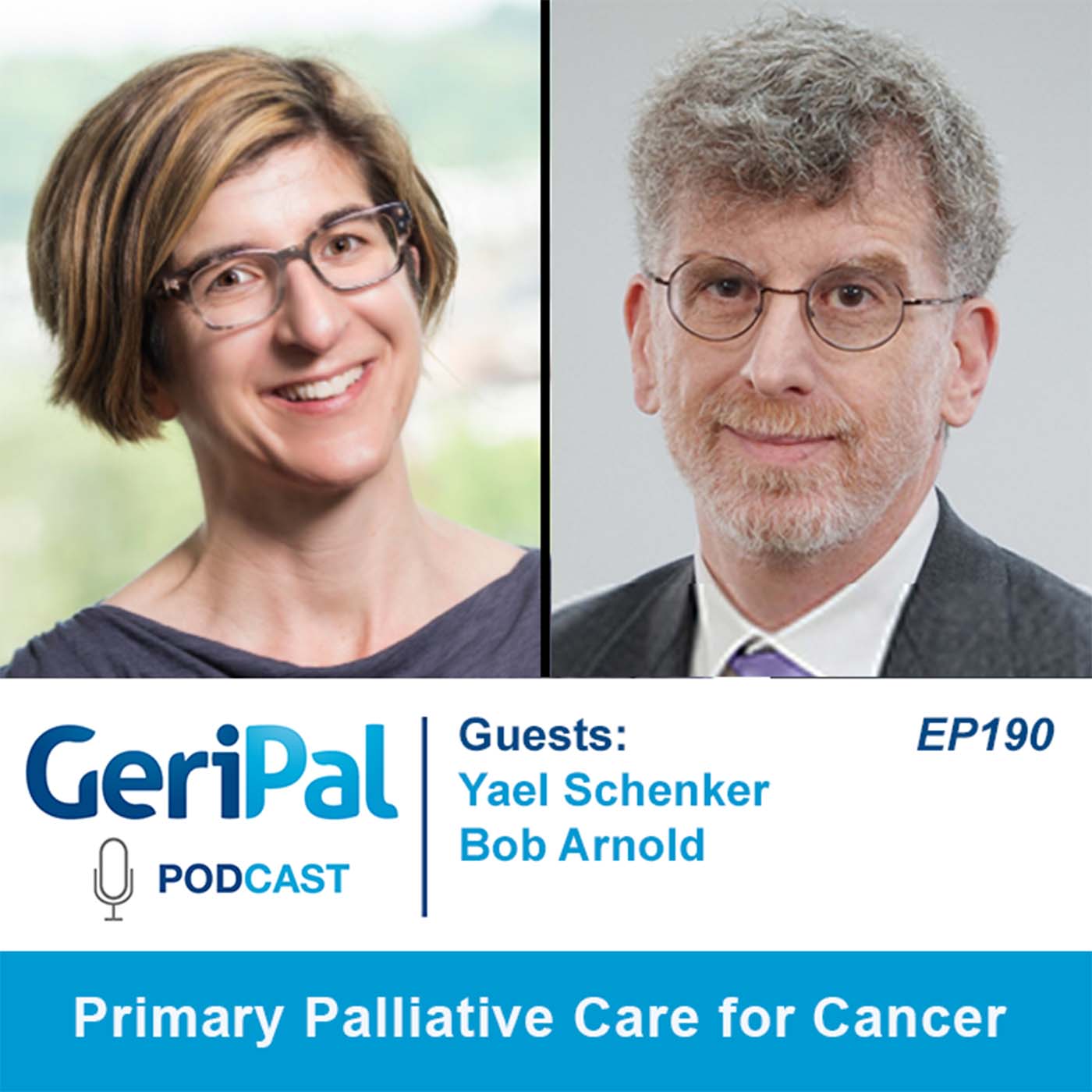
Primary Palliative Care for Cancer: Podcast with Yael Schenker and Bob Arnold
“The take home message of this study is NOT that primary palliative care does not work.” So says Yael Schenker of the negative study of an oncology nurse-led primary palliative care intervention fo…

Time Limited Trials in the ICU: A Podcast with Dong Chang and Richard Leiter
Time-limited trials. We’ve all probably used them before. We meet with patients and families. We agree to either start or continue a particular treatment to see if it helps in some specific way over…

Is nudging patients ethical? Podcast with Jenny Blumenthal-Barby and Scott Halpern
I’m going to start this introduction the way Eric ended our podcast.
You are a GeriPal listener. Like us, you care deeply about our shared mission of improving care for older adults and people livin…

Living with and studying serious illness: Podcast with Randy Curtis
Randy Curtis, a paragon of palliative care research, was diagnosed with ALS in March.
Randy is in a unique position as someone who studies and cares for people living with serious illness, who now …
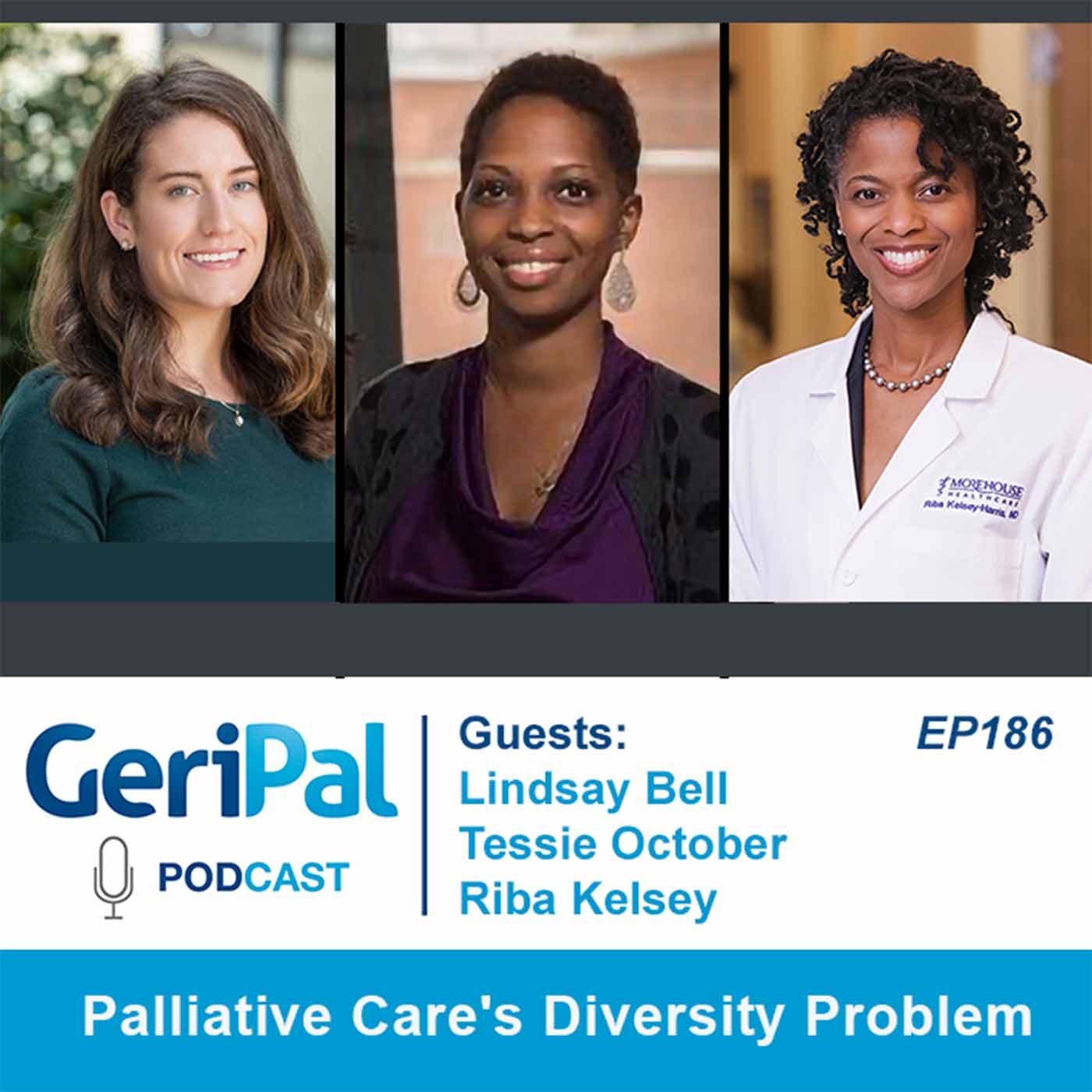
Palliative Care's Diversity Problem: A Podcast with Lindsay Bell, Tessie October, and Riba Kelsey
alliative care has a diversity problem. The workforce of palliative care looks nothing like the patient population that we care for in the hospital and in our clinics. For example, in 2019-2020 a…

Grief and Academia: Podcast with Krista Harrison
Much has been written in geriatrics and palliative care about anticipatory grief, about the grief of caregivers, and even the grief clinicians experience following the deaths of their patients. Kris…

#AcademicLifeHacks: A Podcast About Tips and Tricks to Thrive in Academic Medicine
Today’s podcast is on academic life hacks, those tips and tricks we have seen and developed over the years to succeed in academic medicine in fields that are somewhat generalist in nature. While the …

Loneliness and Social Isolation: Podcast with Carla Perissinotto and Ashwin Kotwal
“Loneliness is different than isolation and solitude. Loneliness is a subjective feeling where the connections we need are greater than the connections we have. In the gap, we experience loneliness…

Aducanumab (Aduhelm) for the Treatment of Alzheimers: A Podcast with Aaron Kesselheim and Jason Karlawish
On June 7th, 2021 FDA approved the amyloid beta-directed antibody aducanumab (Aduhelm) for the Treatment of Alzheimers. This approval of aducanumab was not without controversy. Actually, let me res…

Cannabis in Older Adults: A Podcast with Bree Johnston and Ben Han
Cannabis use by older adults has increased substantially over the last decade, a trend that has paralleled the legalization of its use for medical and recreational purposes. In that same time, there …

Polypharmacy and Deprescribing Super Special: Podcast with Anna Parks, Matthew Growdon, and Mike Steinman
In a new study in JAGS, Matthew Growdon found that the average number of medications people with dementia took in the outpatient setting was eight, compared to 3 for people without dementia.
In an…

Program of All-Inclusive Care for the Elderly (PACE): A Podcast with Dan Drake and Jay Luxenberg
Older adults often turn to institutional settings like nursing homes when they need more help than they can get at home. However, since the 1970s, there has been a program that allows older adults t…
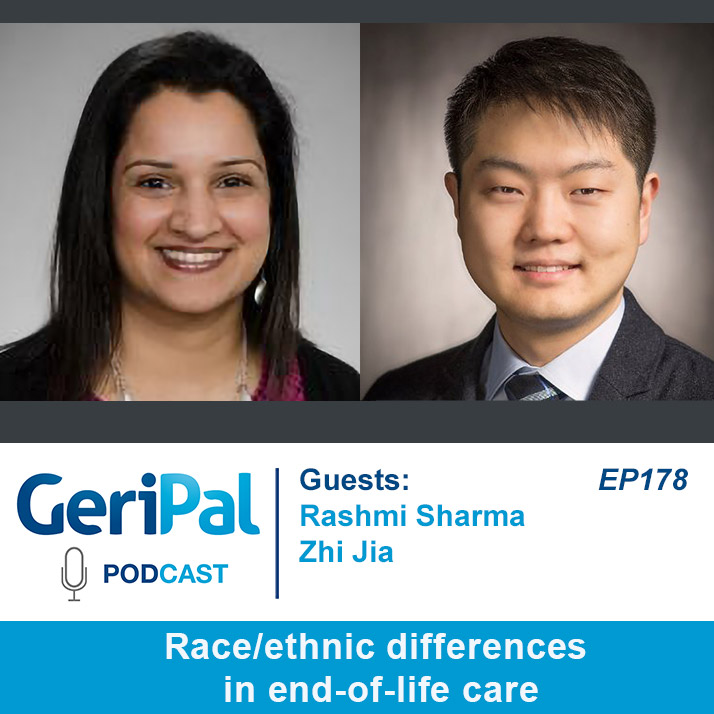
Race/ethnic differences in end-of-life care: Podcast with Rashmi Sharma and Zhi Jia
We have made remarkable progress in reducing the use of feeding tubes for patients with advanced dementia. This has been due to the leadership of people like Susan Mitchell and Joan Teno, among othe…
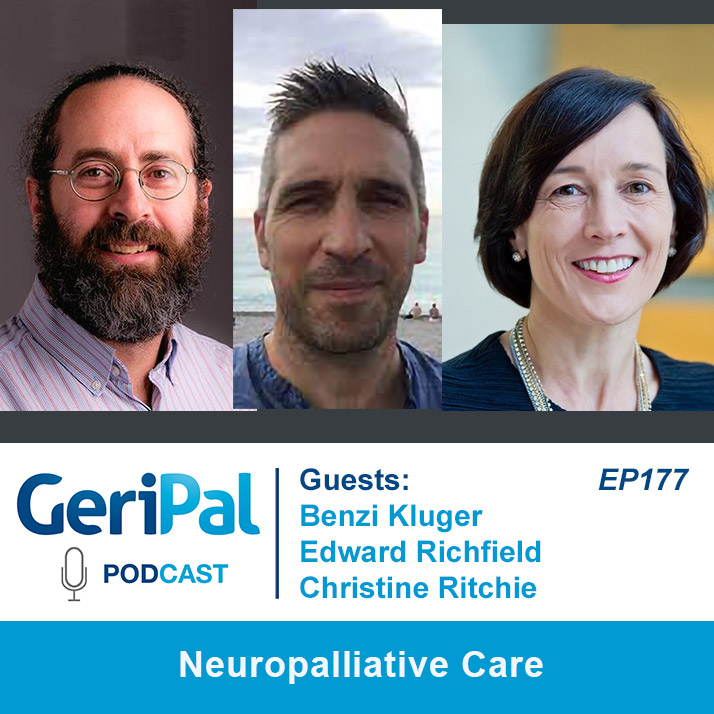
Neuropalliative Care: A podcast with Benzi Kluger, Edward Richfield, and Christine Ritchie
While palliative care most traditionally grew up with a strong association with cancer care and end-of-life care, more and more evidence is coming out about how to integrate palliative care into a va…
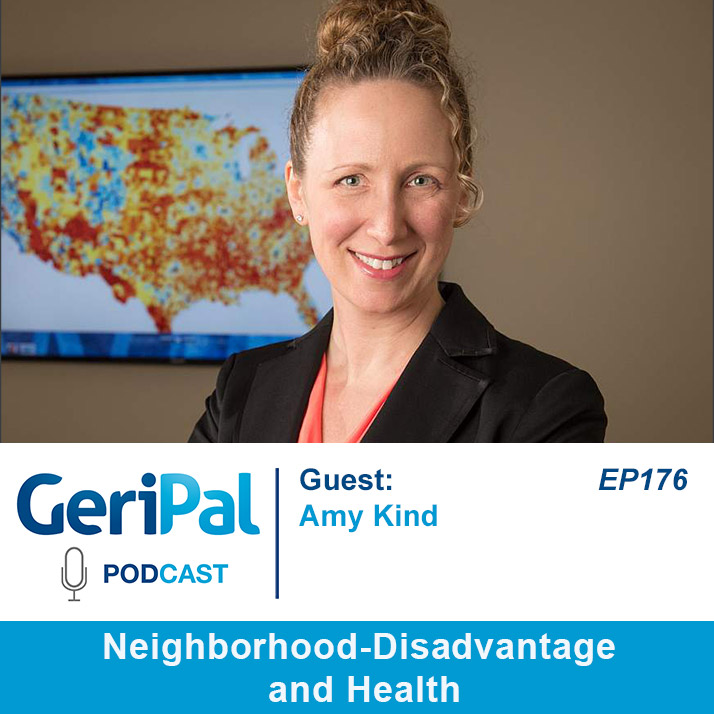
Neighborhood-Disadvantage and Health: A Podcast with Amy Kind
What if there was a tool that could break down a neighborhood’s socioeconomic measures, like income, education, employment and housing quality, to give us a sense of how those factors influence overa…
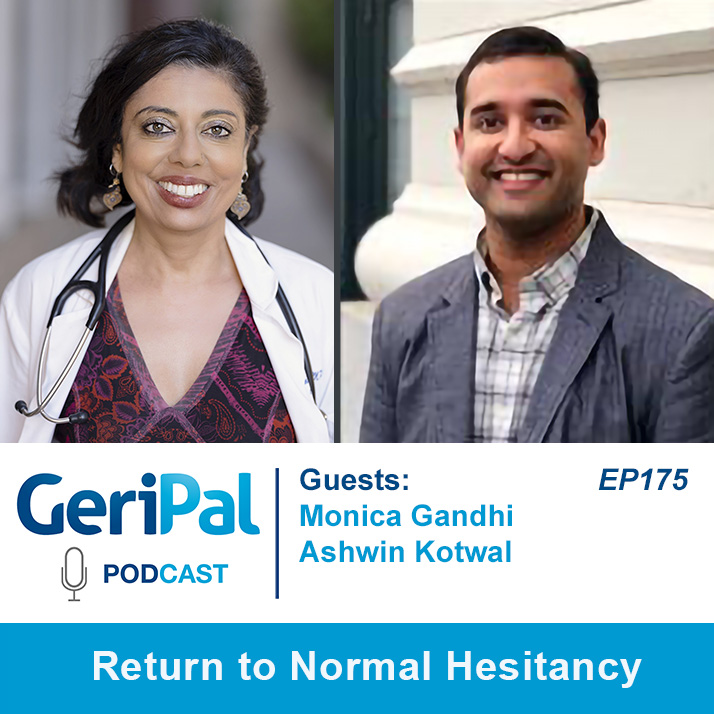
Return to Normal Hesitancy: Podcast with Monica Gandhi and Ashwin Kotwal
Harm reduction, as so clearly described by our guest Monica Gandhi on this podcast, began as a public health approach that guided management of HIV. Harm reduction represented an alternative to an a…

"Palliative" Inotropes?!?: Podcast with Haider Warraich
In your clinical experience, you may have cared for patients receiving palliative chemotherapy and wondered, hmmm, why is that called “palliative” chemotherapy? We’ve written about this issue previou…